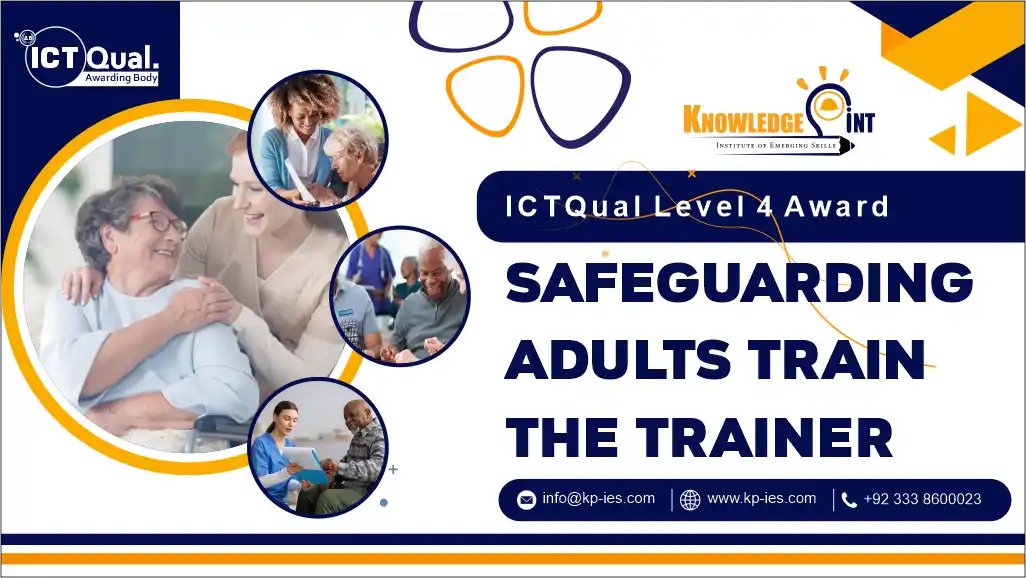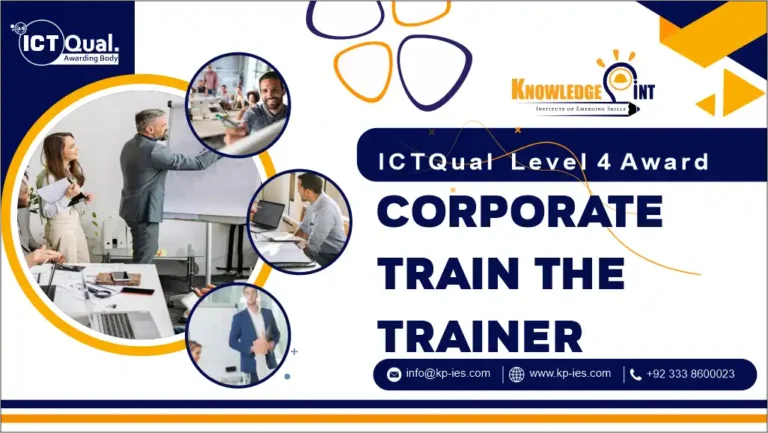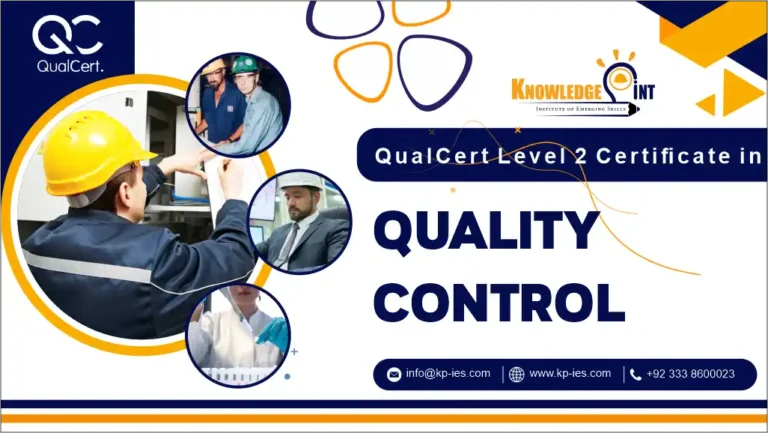In our rapidly evolving society, the importance of safeguarding vulnerable adults cannot be overstated. Ensuring that trainers are well-prepared to educate others on this critical issue is essential. The ICTQual Level 4 Award in Safeguarding Adults Train the Trainer is designed to equip trainers with the advanced skills and knowledge necessary to deliver effective safeguarding training. This course is a significant step for professionals dedicated to protecting adults at risk and making a meaningful impact in their communities.
The ICTQual Level 4 Award in Safeguarding Adults Train the Trainer is a comprehensive program that prepares individuals to train others on the fundamental and advanced aspects of safeguarding adults. Participants will gain in-depth knowledge of safeguarding principles, develop effective training techniques, and learn to create engaging training sessions tailored to the unique needs of adult learners.
The ICTQual Level 4 Award in Safeguarding Adults Train the Trainer is a vital program for those dedicated to protecting vulnerable adults and enhancing their training capabilities. This course provides the skills, knowledge, and recognition needed to make a significant impact in the field of adult safeguarding. By becoming an expert trainer, you will play a crucial role in educating others and ensuring that safeguarding standards are upheld across organizations. Embrace this opportunity to advance your career and contribute to the safety and well-being of adults at risk.
Course Overview
The ICTQual Level 4 Award in Safeguarding Adults Train the Trainer consists of 7 mandatory units which are as follows.
The learning outcomes of ICTQual Level 4 Award in Safeguarding Adults Train the Trainer include:
Introduction to Adult Safeguarding
- Foundational Knowledge: Understand the basic principles and importance of safeguarding adults.
- Context and Scope: Comprehend the scope and context of safeguarding within various organizational and community settings.
- Roles and Responsibilities: Recognize the roles and responsibilities of individuals and organizations in protecting vulnerable adults.
Understanding Abuse and Neglect
- Types of Abuse: Identify different types of abuse and neglect, including physical, emotional, sexual, financial, and institutional abuse.
- Signs and Indicators: Learn to recognize signs and indicators of abuse and neglect in adults.
- Impact of Abuse: Understand the short-term and long-term impacts of abuse and neglect on vulnerable adults.
Safeguarding Procedures and Protocols
- Reporting Procedures: Understand the procedures for reporting concerns about adult safety and well-being.
- Response Protocols: Learn appropriate response protocols when abuse or neglect is suspected or disclosed.
- Risk Assessment: Develop skills in conducting risk assessments to identify and mitigate potential threats to adult safety.
Training Delivery Skills
- Training Design: Learn how to design effective safeguarding training sessions tailored to the needs of adult learners.
- Engagement Techniques: Master techniques for engaging participants and fostering an interactive learning environment.
- Facilitation Skills: Develop strong facilitation skills to manage group dynamics and ensure effective learning outcomes.
Assessment and Evaluation
- Learner Assessment: Learn various methods for assessing learners’ understanding and competence in safeguarding.
- Training Evaluation: Develop skills to evaluate the effectiveness of training programs and make improvements based on feedback.
- Feedback Mechanisms: Implement effective feedback mechanisms to enhance learning and training outcomes.
Ethical and Professional Considerations
- Ethical Principles: Understand the ethical principles that underpin safeguarding practices.
- Confidentiality and Consent: Learn about the principles of confidentiality and obtaining consent in safeguarding scenarios.
- Professional Conduct: Recognize the importance of professional conduct and maintaining boundaries in safeguarding work.
Practical Application and Case Studies
- Case Study Analysis: Engage in the analysis of real-world case studies to apply theoretical knowledge to practical scenarios.
- Problem-Solving Skills: Develop problem-solving skills to address complex safeguarding issues.
- Reflective Practice: Utilize reflective practice to evaluate and improve your approach to safeguarding training and practice.
Course Benefits of the ICTQual Level 4 Award in Safeguarding Adults Train the Trainer:
1. Specialized Expertise
- Auditing Proficiency: Gain specialized knowledge and skills in auditing energy management systems according to the ISO 50001:2018 standard.
- Industry Recognition: Earn a globally recognized qualification that demonstrates your proficiency as an energy management systems auditor.
2. Career Advancement
- Expanded Career Opportunities: Qualify for roles such as Lead Energy Auditor, Energy Management Consultant, or Compliance Officer.
- Higher Earning Potential: Enhance your value to employers and increase your earning potential with specialized expertise in energy management auditing.
3. Industry-Relevant Skills
- Practical Application: Acquire practical skills and techniques for planning, conducting, and documenting energy management system audits.
- Effective Communication: Develop communication skills to interact with auditees, audit teams, and stakeholders effectively.
4. Contribution to Sustainability
- Promotion of Energy Efficiency: Play a key role in promoting energy efficiency and reducing environmental impact within organizations.
- Support for Sustainable Practices: Assist organizations in implementing and maintaining energy management systems that support sustainability goals.
5. Quality Assurance
- Compliance Assurance: Help organizations achieve compliance with ISO 50001:2018 requirements and other relevant regulatory standards.
- Risk Mitigation: Identify areas of non-conformance and provide recommendations for corrective actions to mitigate risks.
6. Continuous Professional Development
- Lifelong Learning: Engage in continuous professional development by staying updated with the latest developments and trends in energy management auditing.
- Networking Opportunities: Connect with industry professionals, auditors, and experts, expanding your professional network and opportunities.
7. Organizational Benefits
- Improved Performance: Contribute to the improvement of organizational energy performance through effective auditing and recommendations for continuous improvement.
- Enhanced Reputation: Help organizations build a positive reputation for their commitment to energy management and sustainability practices.
8. Personal Growth
- Leadership Development: Develop leadership skills to effectively manage audit teams, delegate tasks, and ensure audit objectives are met.
- Confidence Boost: Gain confidence in your abilities as an energy management systems auditor through practical training and hands-on experience.
Completing the ICTQual Level 4 Award in Safeguarding Adults Train the Trainer opens up a multitude of future progression opportunities, enabling individuals to advance their careers, specialize further, or explore new avenues within the field of adult safeguarding. Here are several pathways to consider:
1. Advanced Training and Certifications
- ICTQual Level 5 Diploma in Safeguarding and Adult Protection: Deepen your expertise and knowledge in adult safeguarding by pursuing a higher-level diploma, preparing for more senior roles in safeguarding.
- Specialized Certifications: Obtain certifications in specific areas such as mental health safeguarding, elder abuse prevention, or disability support, expanding your specialization within adult safeguarding.
2. Higher Education
- Bachelor’s Degree in Social Work, Psychology, or Health Care: Further your academic credentials with a degree that provides a comprehensive understanding of adult safeguarding principles and practices.
- Master’s Degree in Social Work, Public Health, or Adult Education: Pursue a master’s degree to gain advanced knowledge and open doors to leadership and specialized roles within adult safeguarding.
3. Professional Development
- Continuous Learning: Engage in ongoing professional development through workshops, seminars, and conferences focused on adult safeguarding, staying updated on the latest research, trends, and best practices.
- Membership in Professional Organizations: Join organizations dedicated to adult safeguarding, such as the Adult Safeguarding Network or the National Association for Adult Protection, to access resources, networking opportunities, and continuing education.
4. Career Advancement
- Leadership Roles: Progress to higher-level roles such as Safeguarding Lead, Adult Protection Officer, or Training and Development Manager within health care, social services, or community organizations.
- Consulting and Advisory Roles: Transition into consulting or advisory roles, offering expertise in adult safeguarding policies, procedures, and training strategies to organizations seeking to enhance their safeguarding practices.
5. Entrepreneurship
- Start Your Own Training Consultancy: Establish your own consultancy specializing in adult safeguarding training, offering customized training solutions to health care providers, social service agencies, and community organizations.
- Online Training Programs: Develop and market online adult safeguarding training courses, reaching a broader audience and providing accessible education on safeguarding practices.
6. Global Opportunities
- International Consultancy: Explore opportunities to work internationally as a safeguarding consultant or trainer, supporting organizations and governments in developing and implementing adult safeguarding policies and practices.
- Cross-Cultural Competence: Develop skills in delivering adult safeguarding training across diverse cultural contexts, enhancing your ability to work effectively in global settings.
7. Teaching and Academic Careers
- Adult Education: Teach adult safeguarding courses at colleges, vocational schools, or adult education centers, contributing to the professional development of individuals working in health care, social work, and related fields.
- Research and Policy Development: Engage in research and policy development related to adult safeguarding, contributing to evidence-based practices and influencing policy at local, national, and international levels.
8. Specialist Roles
- Mental Health and Elder Care: Specialize in mental health safeguarding or elder abuse prevention, working in specialized care facilities, advocacy organizations, or government agencies focused on vulnerable populations.
- Disability Support: Focus on adult safeguarding within disability support services, advocating for the rights and protection of individuals with disabilities in health care and community settings.
The ICTQual Level 4 Award in Safeguarding Adults Train the Trainer equips individuals with the knowledge, skills, and credentials to make a significant impact in adult safeguarding. By pursuing these future progression opportunities, you can advance your career, deepen your expertise, and contribute to the ongoing improvement of adult safeguarding practices. Embrace these pathways to continue growing professionally and making a difference in the lives of vulnerable adults within your community and beyond.







